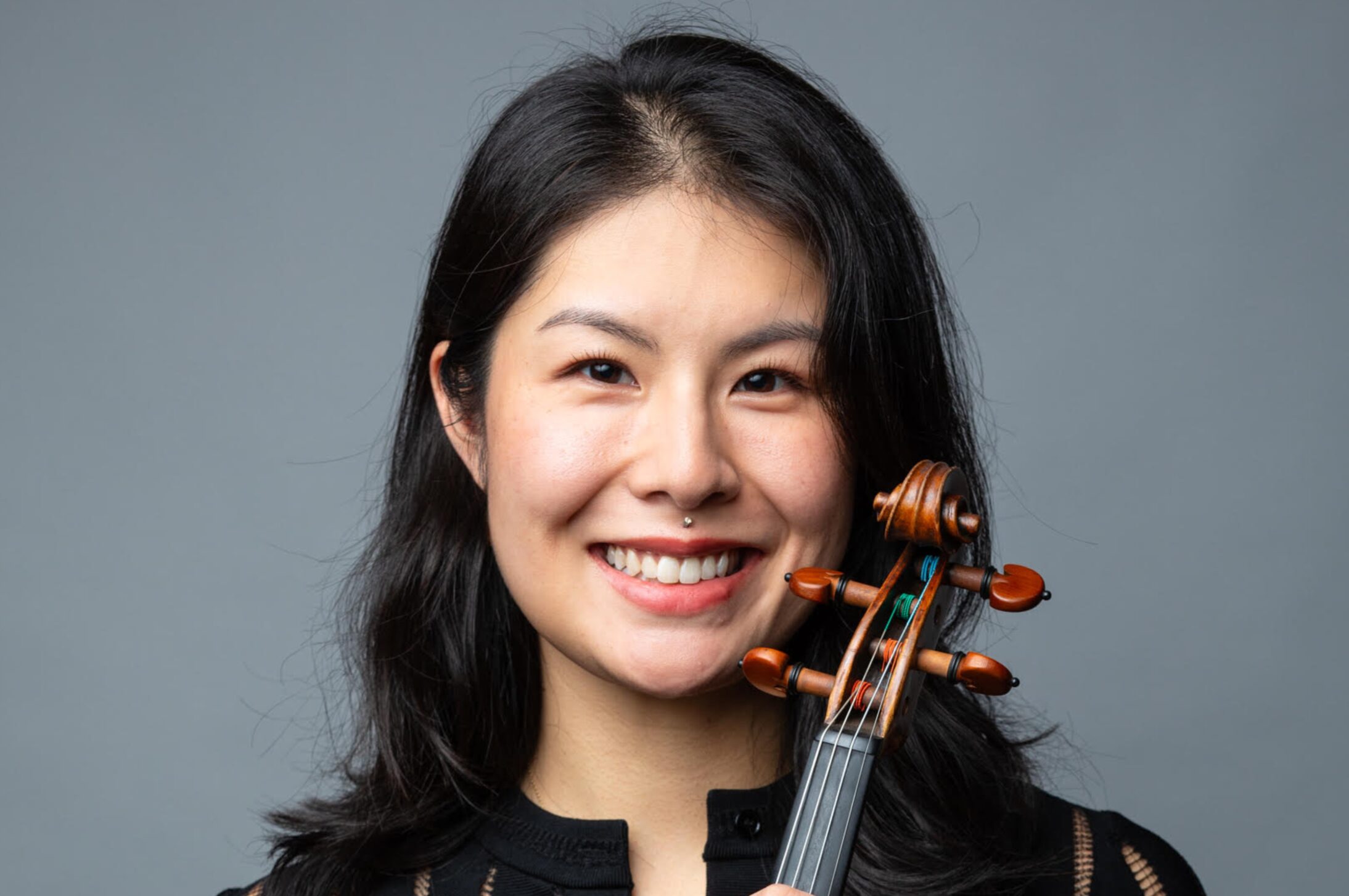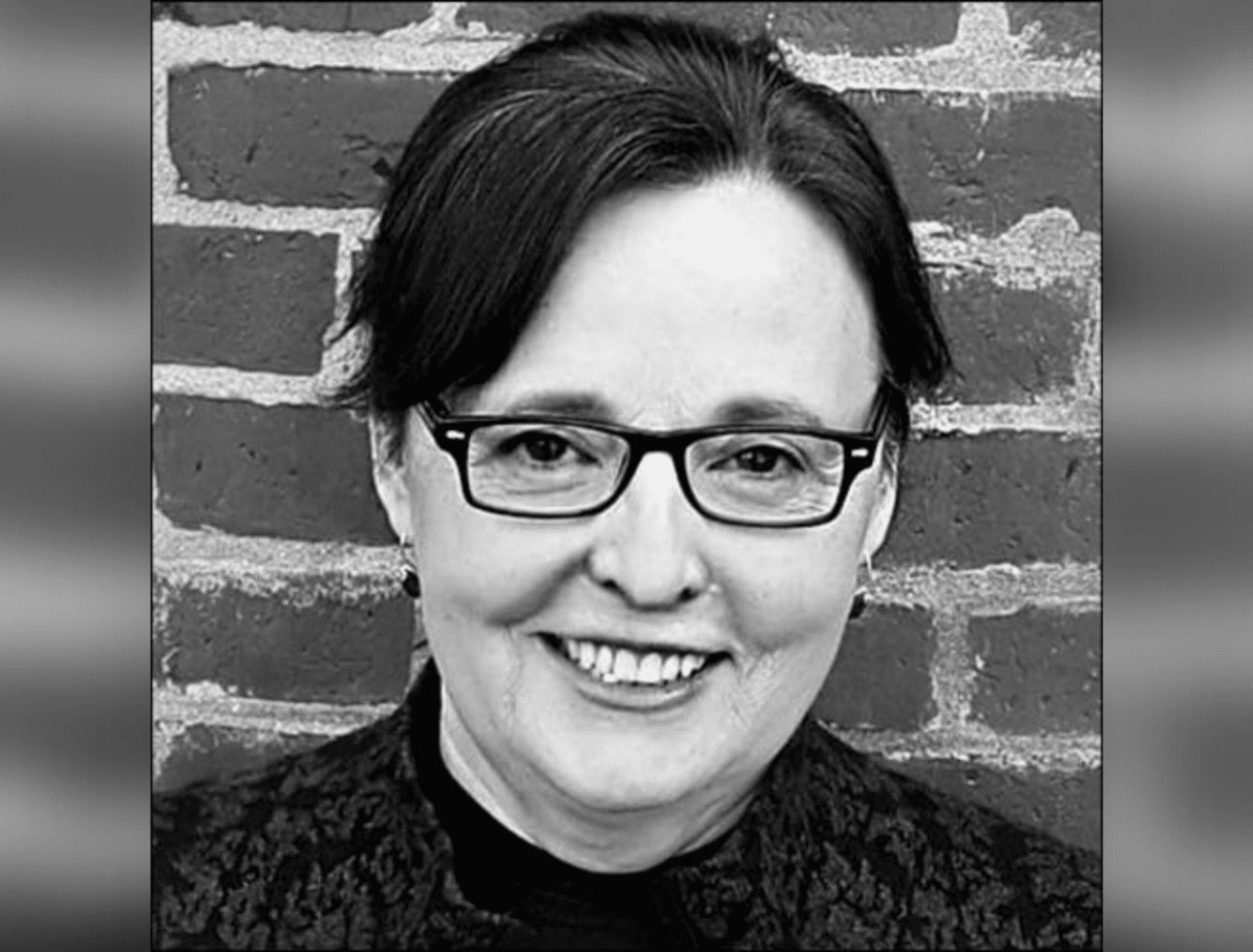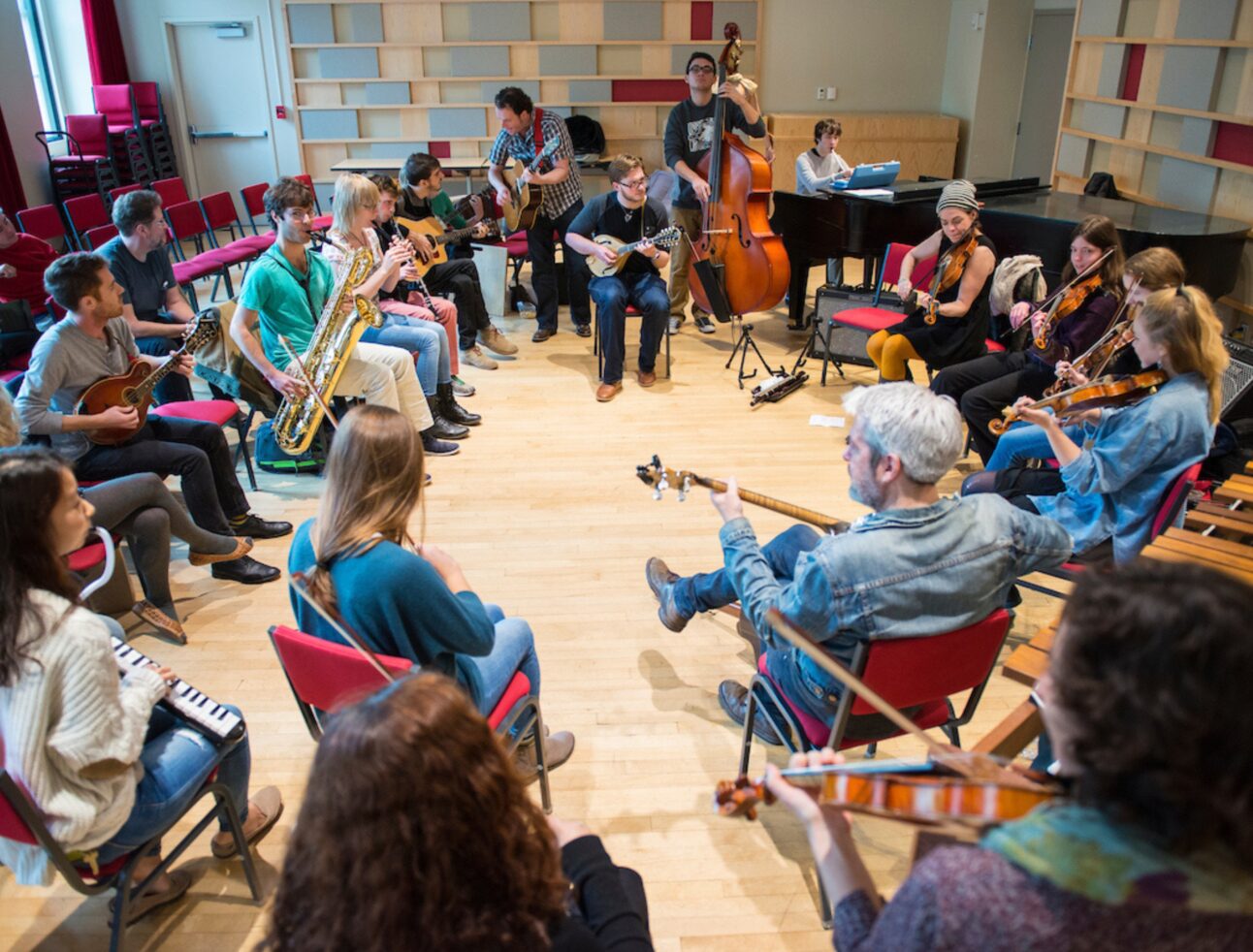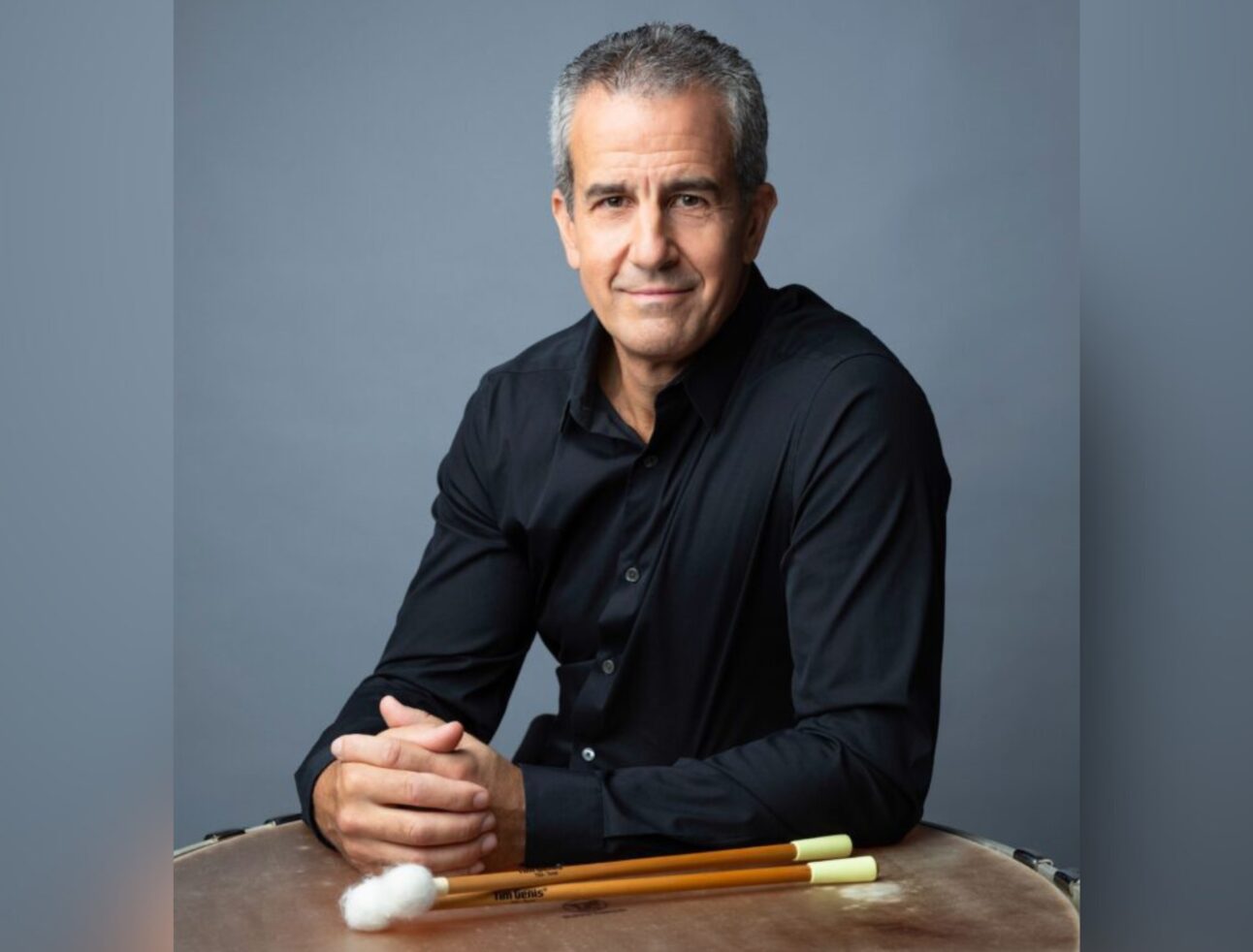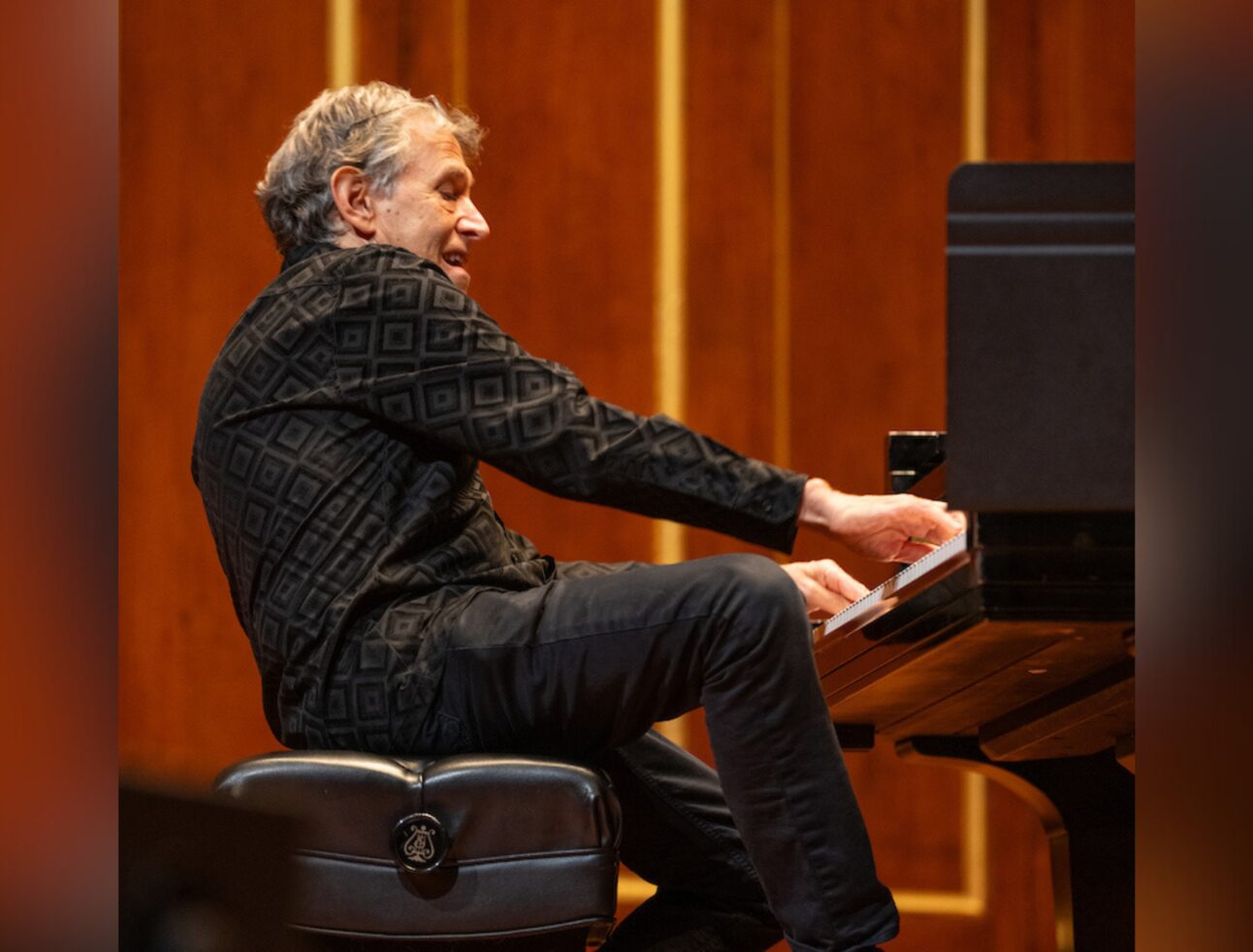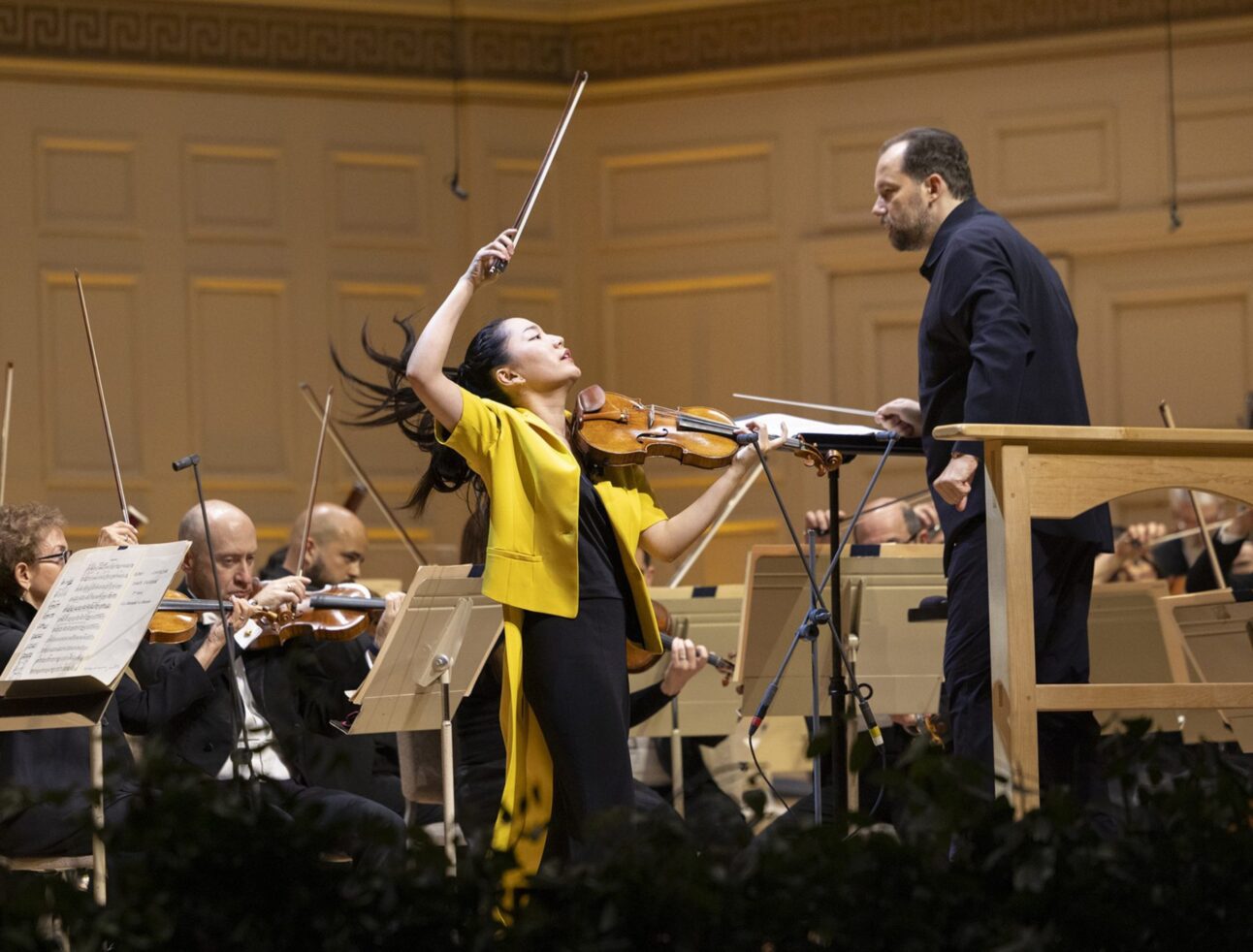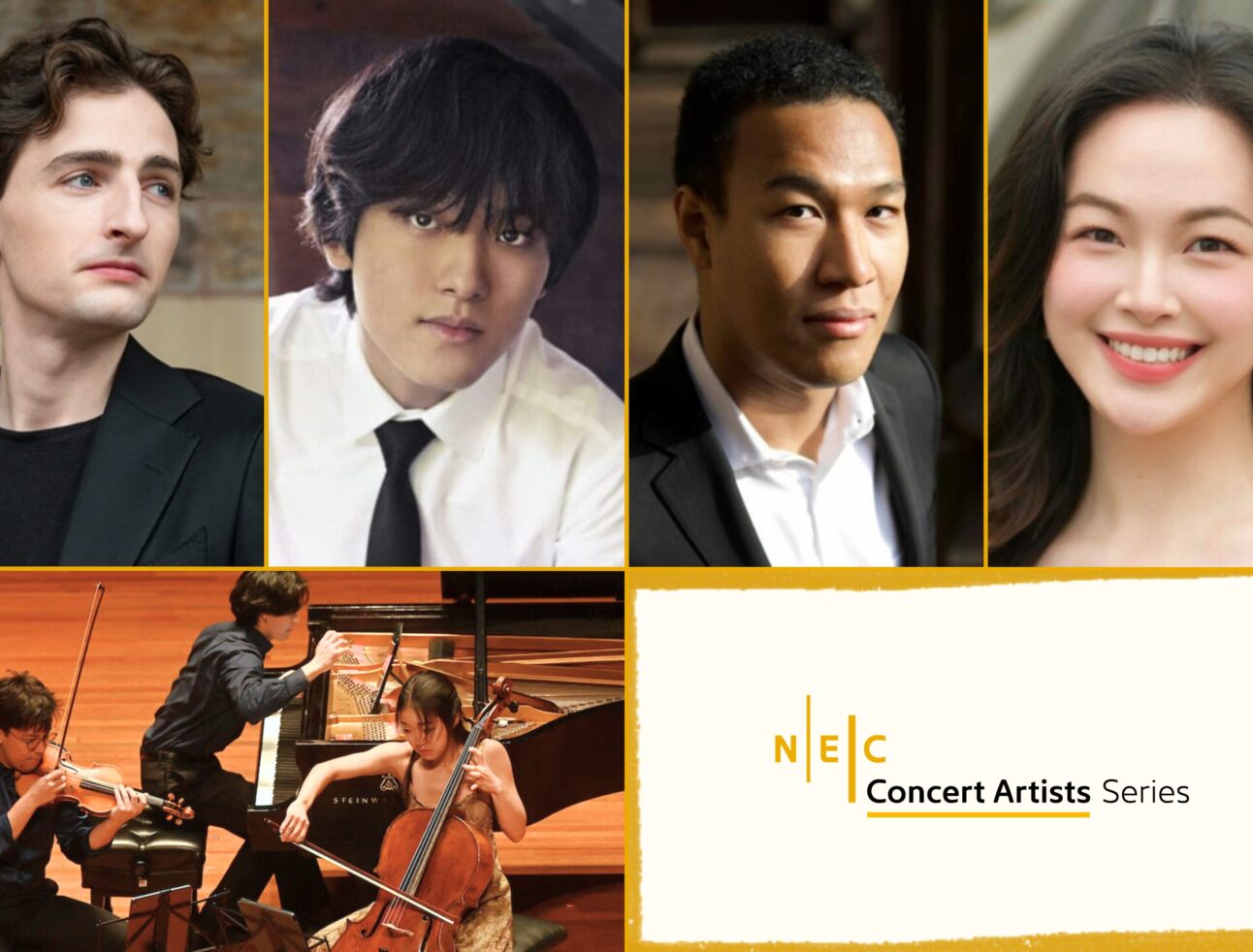In June, New England Conservatory alumna Sophie Wang ’18 MM, ’20 GD was promoted to associate concertmaster of the Boston Symphony Orchestra, whose violin section she first joined in 2022. The promotion was the result of an audition. “Learning how to take an audition was something that was a process for me,” she said.
Wang said she had no specific idea what she wanted to do, career-wise, when she arrived at NEC to study with Donald Weilerstein. She was “open to what could possibly come up.” What came up, eventually, was a job in one of the most celebrated orchestras in the world.
“I’ve been playing in orchestras since I was really young,” Wang said, “and I’ve always enjoyed that. It’s felt really natural and comfortable.”
Wang served as assistant principal-second violinist of the Columbus Symphony Orchestra while she was an undergraduate student at the Joyce and Henry Schwob School of Music at Columbus State University in Georgia. She played in the NEC Philharmonia and the Conservatory’s Chamber Orchestra and participated in repertoire classes with BSO violinist Jason Horowitz in graduate school, during which she was senior assistant concertmaster of the South Carolina Philharmonic in Columbia, her hometown orchestra.
After securing that job, which involved traveling home for a monthly concert, Wang auditioned for several ensembles, including the Vancouver Symphony Orchestra and BSO. “Vancouver was about a month before BSO,” Wang said, “and by that point I had never made it to finals.”
The audition in Vancouver presented frustrating logistical challenges. “Literally everything that could have gone wrong when I was trying to get there went wrong” she said. “I almost didn’t make the audition. … I was so stressed about that. I was like, ‘I worked so hard and now I’m not even going to make it.’ But luckily, I did. And I think in some ways that lightened the anxiety and stress.”
Though her performance wasn’t perfect, Wang advanced, for the first time, to the final round. She was offered a trial with the orchestra. The takeaway, she said, is not thinking too much about mistakes made during an audition. “That’s the hard part,” she said, speaking as someone who’s since served on an audition committee. “If a mistake happens, that’s fine. … It’s the overall performance and how you recover.”
Back in Boston, with a trial pending in Vancouver, Wang wasn’t sure she’d even take the BSO audition, but decided it was worth it.
“I was already living here,” she said, “I didn’t have to pay hundreds of dollars to fly and stay somewhere — there was a lot less pressure for me to take this one.” Wang won the audition and, in 2022, joined the BSO’s violin section.
The audition this past spring for the associate concertmaster position included repertoire Wang hadn’t performed at the other auditions she’d taken, “a lot of excerpts that I hadn’t learned” — parts the concertmaster plays. As the third violinist in the BSO’s hierarchy, those were parts she’d have to know if circumstances required her to move into first-associate concertmaster Alexander Velinzon’s chair, or even concertmaster Nathan Cole’s. “There were several (excerpts) that were not totally standard,” she said. The balance of the audition list was repertoire with which she was familiar, having learned it for the other auditions. Wang won the audition for the associate concertmaster position, and the BSO announced her promotion in June.
Today, a little more than three years after almost not making it to the audition in Vancouver, Wang is performing at the Tanglewood Music Center, the BSO’s summer home. In addition to her role as associate concertmaster of the BSO, she holds the same position with the Boston Pops Orchestra, though in that situation she’s the second violinist in the orchestra’s hierarchy, as the BSO’s principal players, she explained, don’t perform with the Pops.
For someone who didn’t know when she enrolled in grad school less than a decade ago exactly what she wanted her career to look like, Wang has arrived where many hope to sit. Getting there has meant learning music and discovering herself. Weilerstein, Wang’s teacher at NEC, had a lot to do with both areas of exploration.
“I feel so fortunate that I was able to study with him,” Wang said. “He is why a lot of people come to NEC.”
Former NEC faculty violinist Malcolm Lowe, too, had lessons to impart. Wang studied with Lowe, who was the BSO’s concertmaster for 35 years, after graduating from NEC, and recalls being frustrated with the lack of success she was having at auditions. “I cannot get things clean,” she felt at the time.
“I don’t hear you anymore,” Wang said Lowe told her, adding, “I think I was trying to serve what I thought the orchestra, what an audition panel, would want to hear.”
Fortunately, she had trusted mentors who kept her focus on the music and not the audition process.
“It’s always music first” for Weilerstein, Wang said. “I think both Mr. Weilerstein and Mr. Lowe have this selfless or egoless approach to music. It’s (about) what the music is saying. Not about us. I think that’s really important and inspiring — how to be the most convincing is by sharing what the music is saying.”
With that in mind, Wang offers some practical advice to musicians hoping to land an orchestra job. “You have to know the excerpts really well,” she said, and you have to practice taking the audition, to the extent that’s possible. “Something that’s really important is playing mock auditions, even when you’re not ready,” she said, whether that involves playing for mentors, peers, or friends, or recording yourself.
When she was taking auditions, Wang said, her partner, trombonist and NEC alumnus Aneesh Kumar ’20 MM, encouraged her to play for other musicians even when she didn’t feel ready. “You just have to play through stuff,” she remembered him saying.
The audition process is one with which Wang became comfortable relatively quickly. Part of that success was understanding that as much practice as one does in solitude — spending hours, days, weeks, months, and years, alone with one’s instrument — preparing to work with other musicians must itself be a collaborative process.
Sophie Wang holds the Robert L. Beal, Enid L., and Bruce A. Beal chair as associate concertmaster of the Boston Symphony Orchestra and the Edward and Bertha C. Rose chair as associate concertmaster of the Boston Pops Orchestra.
